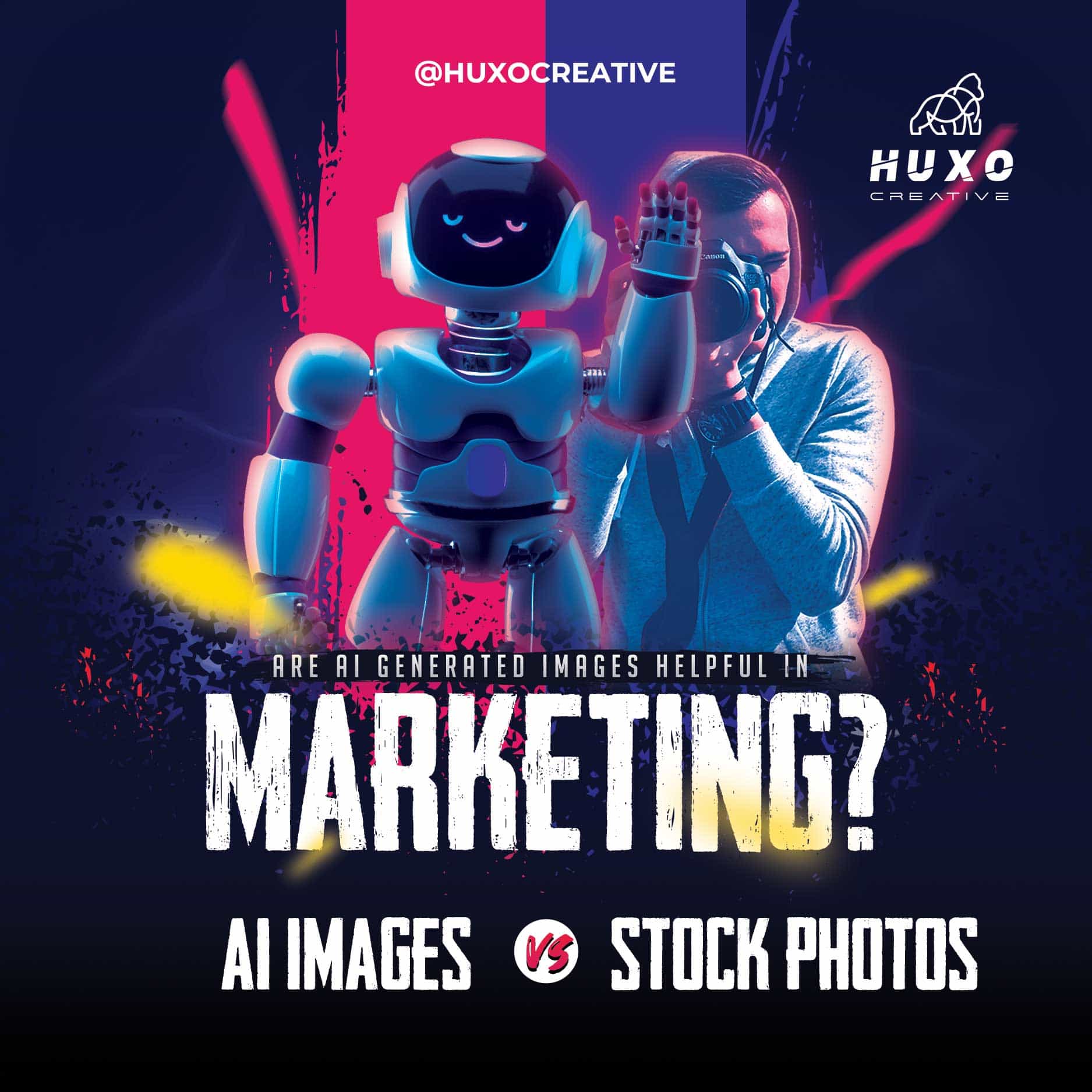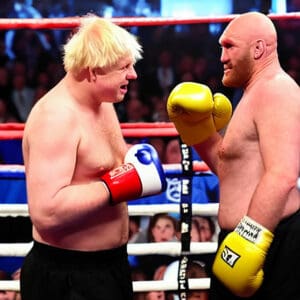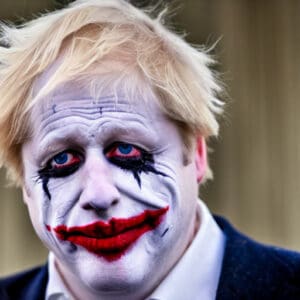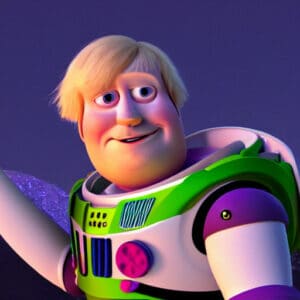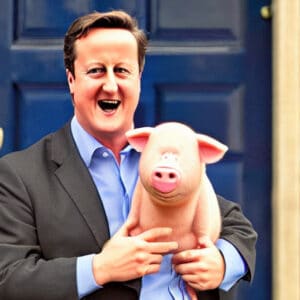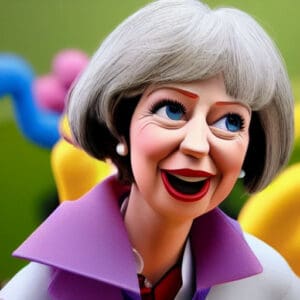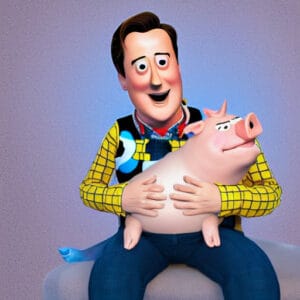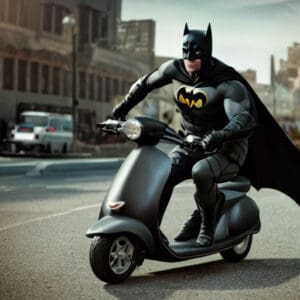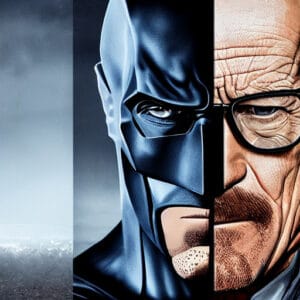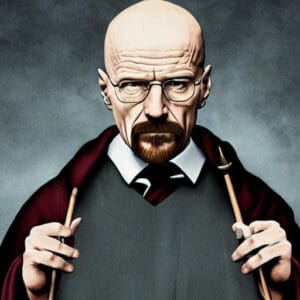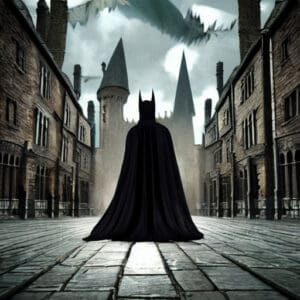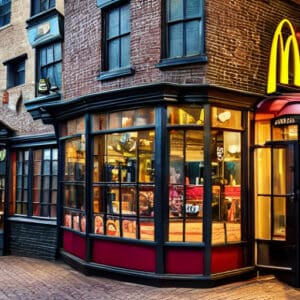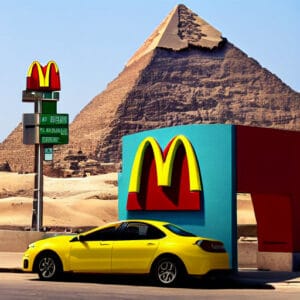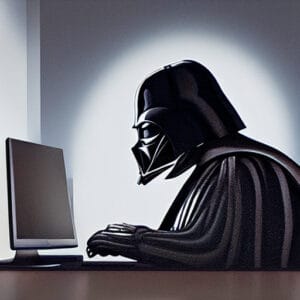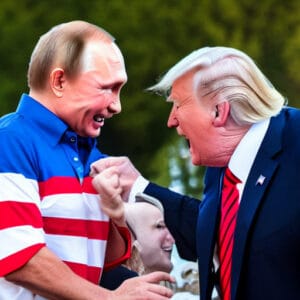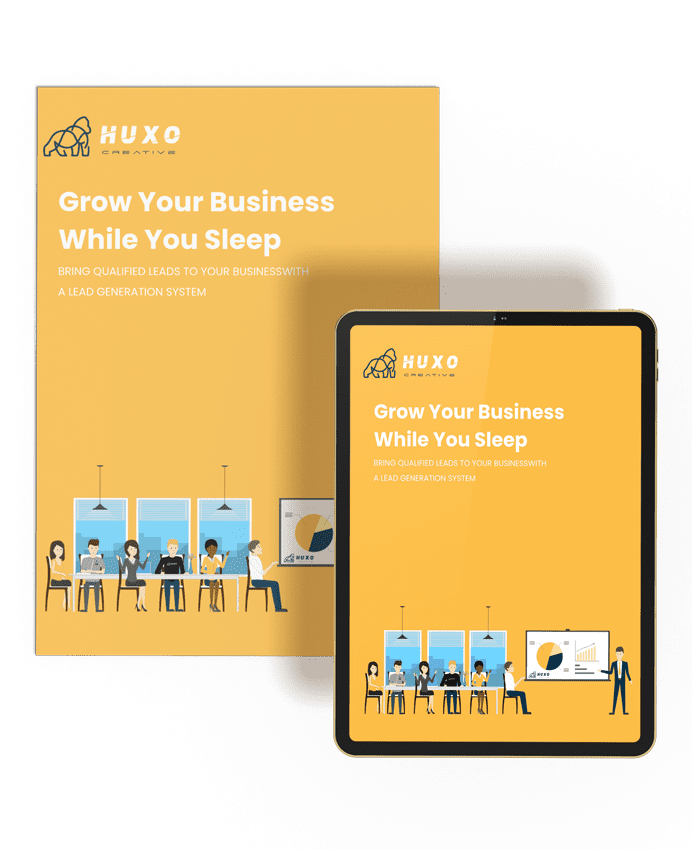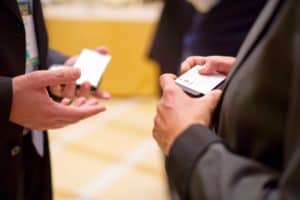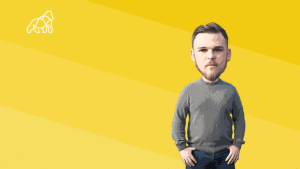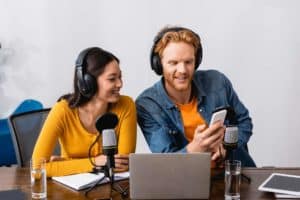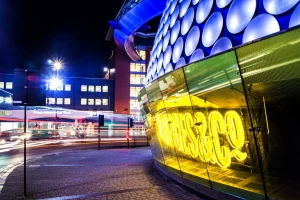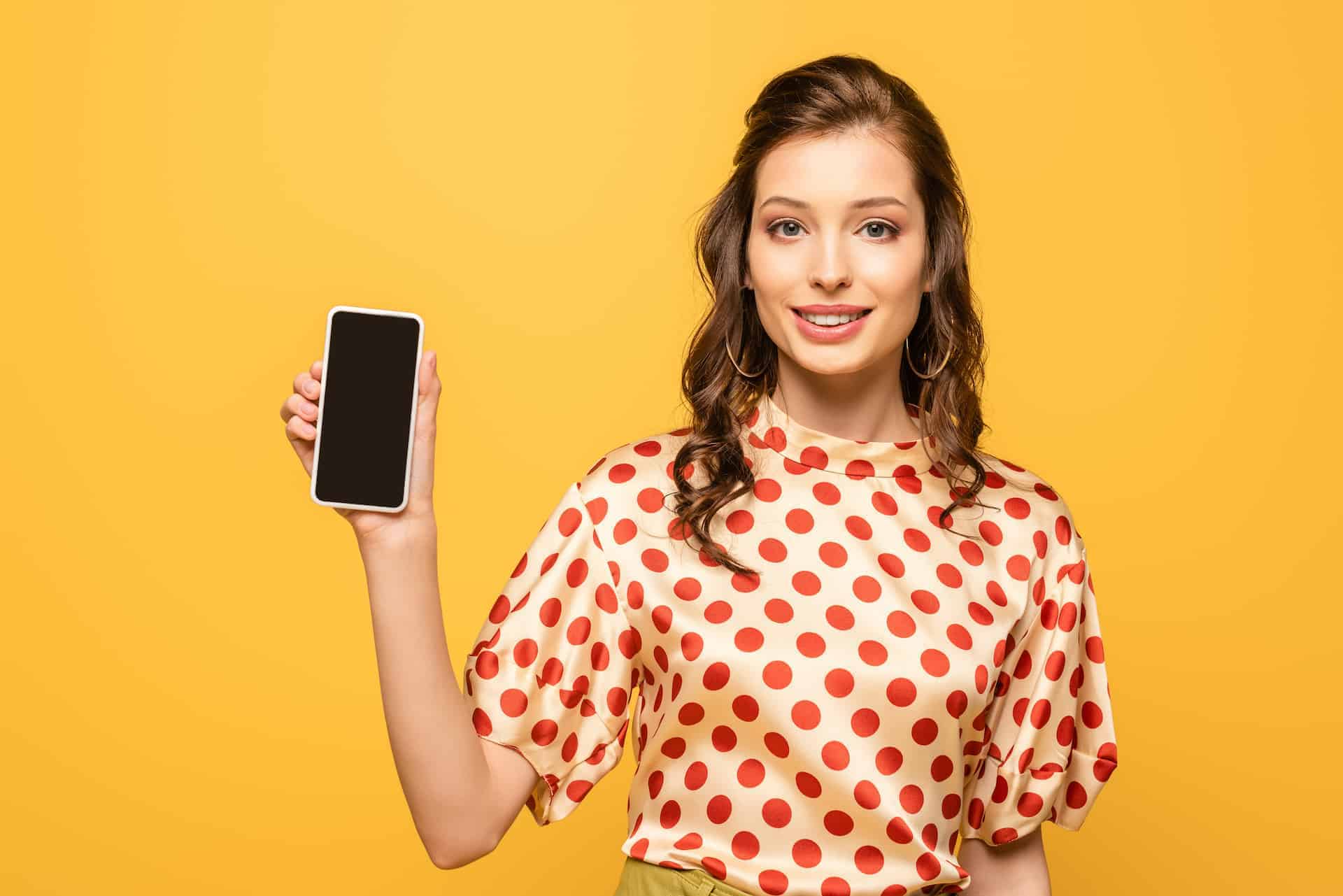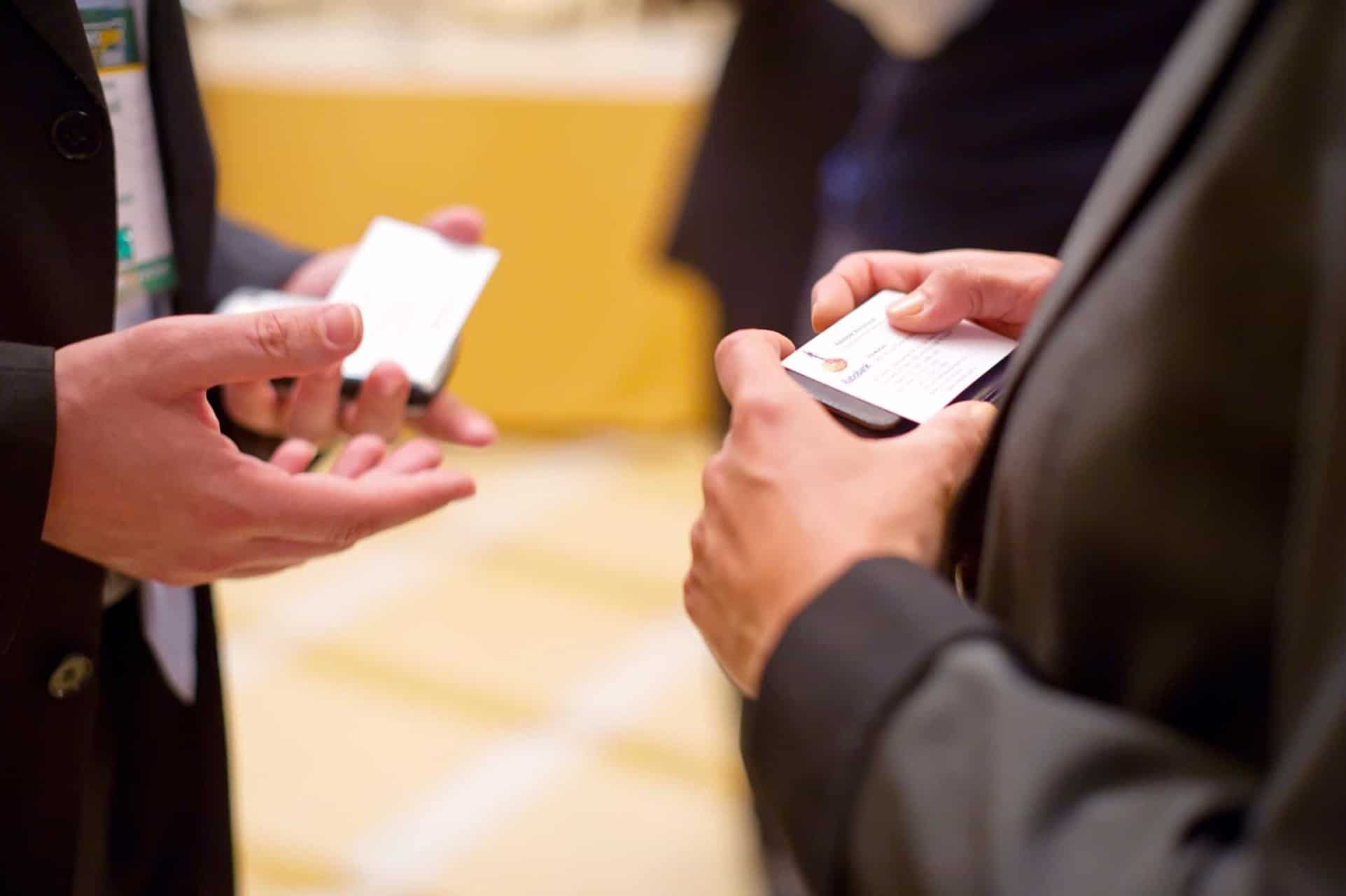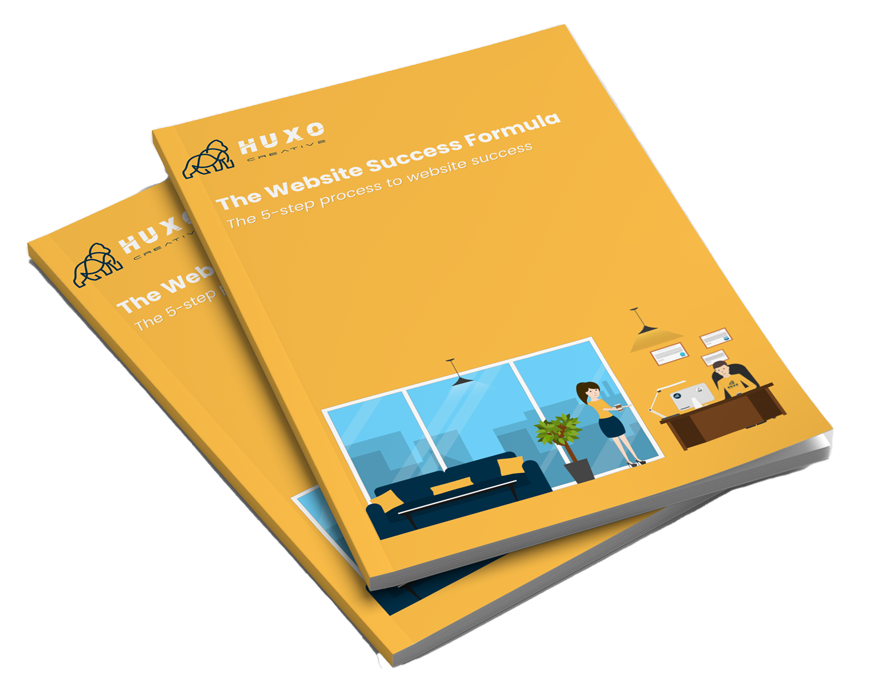AI images are becoming more and more common in marketing as businesses strive to create compelling visuals that stand out from the competition. However, copyright concerns have led Getty Images to ban the sale of AI-generated illustrations.
This year, AI technologies sparked outrage when an AI-generated painting won first place in its category at the Colorado State Fair Fine Art Show, prompting online discussion and worldwide attention.
The controversy raises lots of questions: Who should profit from these images? Is it your work or theirs if you create something using someone else's work as a starting point? And if it's yours, should you be able to sell it?
Table of Contents
Can AI Images Help Your Marketing Strategy?
It's all about being different these days. With so much information bombarding people, finding methods to make your material stand out might be challenging. That's where AI images can come in handy. AI images are a new way to create images that can be used for marketing purposes. But are they more compelling than traditional stock images? Let's explore.
What Are AI Images?
AI images are computer-generated illustrations that have been created using artificial intelligence. This means that they are not actual pictures, but rather, they are computer-generated images. These can be realistic-looking images made to look like real pictures, illustrations, or even cartoons.
As AI technology improves and becomes more accessible, AI images are becoming more and more common in marketing. Businesses are using AI images because they can be created quickly and easily, and they offer a unique way to grab attention.
Should creators and businesses use images created by AI without having to worry about copyright issues? Can artists stop their work, or style, from being used by AI and reproduced without permission? The issue is complicating as AI technology rapidly changes the way we create and consume images.
When cameras were invented, many people thought that pictures would be the final nail in the coffin for visual arts. However, today we know that photography is a kind of art on its own. A camera is about more than just churning out pictures on its own – it gives people a chance to be creative.
Just as having a camera does not make you a photographer, using AI to create images does not make you an artist. However, AI images are a new way to create art, and they should be treated as such.
AI-generated images require human guidance, input, selection, and sometimes editing. The prompts, choice, and concepts are still the most important aspect of the job, and all of that comes from a human mind. AI is just the tool being used to create the image.
Visual, creative types will be able to utilize these AI technologies to come up with ideas, get inspiration for work, and test out prototypes before transforming them into a finished product.
The Best AI Image Tools
AI image generators, or text-to-image tools, are software that can create AI images from textual descriptions. Many AI image generators have become accessible to the public since OpenAI launched DALL-E.
Here are some of the best AI image tools that you can use to create AI images:
Stable Diffusion
Stable Diffusion, according to its official Twitter bio, is AI by the people, for the people.
Stable Diffusion is open-source software with a large community of contributors working to improve it. There are several repositories with various features and optimisations, as well as a Stable Diffusion subreddit, a Reddit community of more than 56k users.
DALL·E 2
DALL-E 2, referred to simply as DALL-E, is the software people most often name when asked about AI text-to-image generators. It was created at OpenAI, a research lab co-founded by Elon Musk.
Users have “complete rights to commercialize the images they create with DALL-E, including the right to reproduce, sell, and market them,” according to OpenAI. This is still a somewhat legal grey area. DALL-E 2 won't produce images of celebrities or other well-known people. The system will generate no explicit, gory, or political material.
Midjourney
Midjourney is a well-known AI text-to-image generator that ranks alongside DALL-E and Stable Diffusion in terms of popularity.
Midjourney received attention when one of its users won a fine art competition using an AI-generated image he created with the software, sparking online debate about AI-generated art.
Midjourney is operated through a Discord server and uses bot commands to generate images in an artistic style. Users can input a text prompt to create images that always seem to have an apocalyptic or eerie quality.
Craiyon (Formerly DALL-E mini)
Craiyon is another online AI image generator. Although it was christened DALL-E mini, Craiyon does not have any affiliation with Open AI besides taking advantage of the terabytes of publicly-available data OpenAI has published on their model.
Craiyon is entirely free to use. With Craiyon, you can generate images from the interactive web demo by entering a text prompt.
Jasper Art
Jasper Art, like others, is an AI that allows you to make beautiful photos utilising only text input. However, Jasper differs from the others because it allows users more control over the images it creates.
Users can add a description of the image they want to create and select from options including style, medium, artist, and mood.
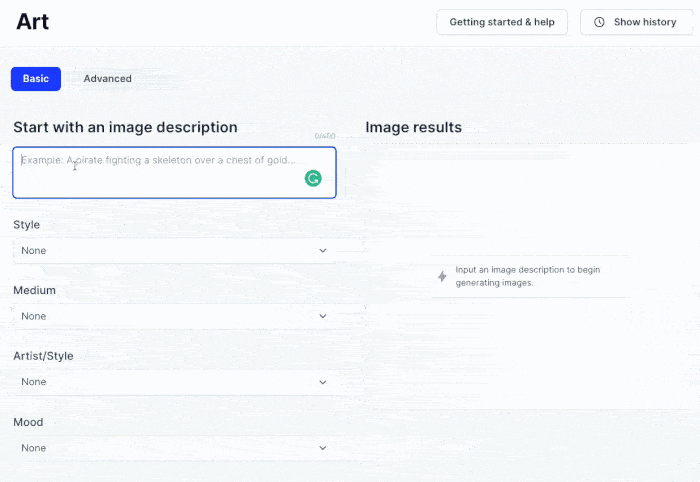
Canva
Canva, yes, that Canva, the design software company that makes it easy for anyone to create beautiful designs, also has an AI image generator.
The Canva AI image generator is part of their paid Pro plan and uses Stable Diffusion.

SUPERMACHINE
SUPERMACHINE AI image generator currently has a lifetime deal on AppSumo for just $69.
SUPERMACHINE AI image generator, with its aggressive all-caps name, has received mixed reviews from Sumolings. Many of the five-star reviews are poorly written or lack detail. The lifetime deal offers 750 image credits per month and offers images in multiple aspect ratios.
The offer is non-refundable, so it's difficult to tell if it's a wise investment or a colossal waste of money. Is this a poorly built attempt to cash in on AI hype? Or is it a promising tool to help you create AI images on a budget?

The AI-Image Generator for Artists
The art that both MidJourney and Jasper Art have generated thus far is excellent, to say the least. I'm always blown away by what AI is capable of creating.
If you're an artist or someone who likes to dabble in digital art, I highly recommend giving one of these AI-image generators a try. You might be surprised at how easy they are to use and the results you can achieve.
If you're on LinkedIn and want to see some of the mind blowing work created with MidJourney, head across to the Artificial Inspiration page created by Seedily founder Chris Branch. They're now on TikTok too at @artificialinspiration.
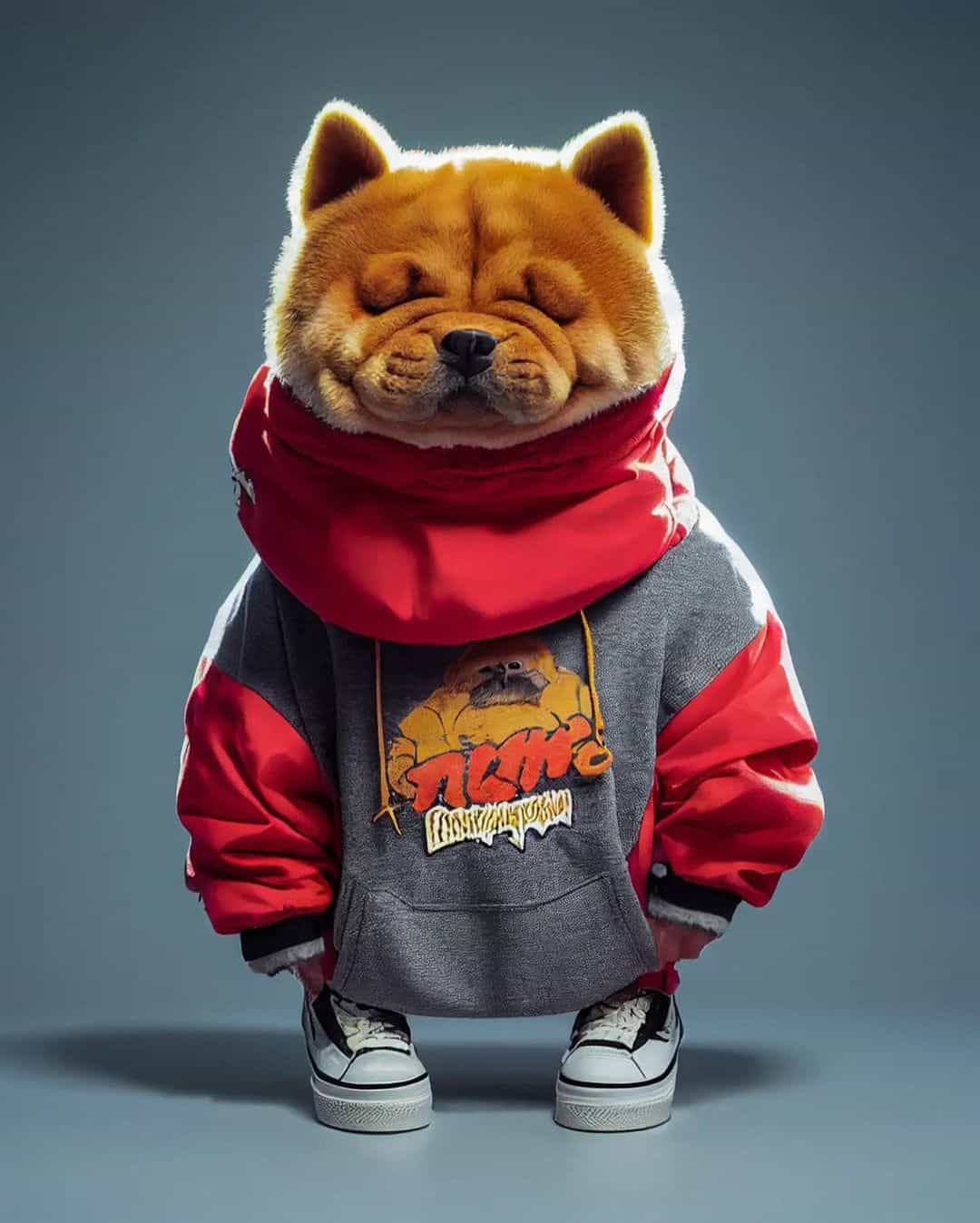
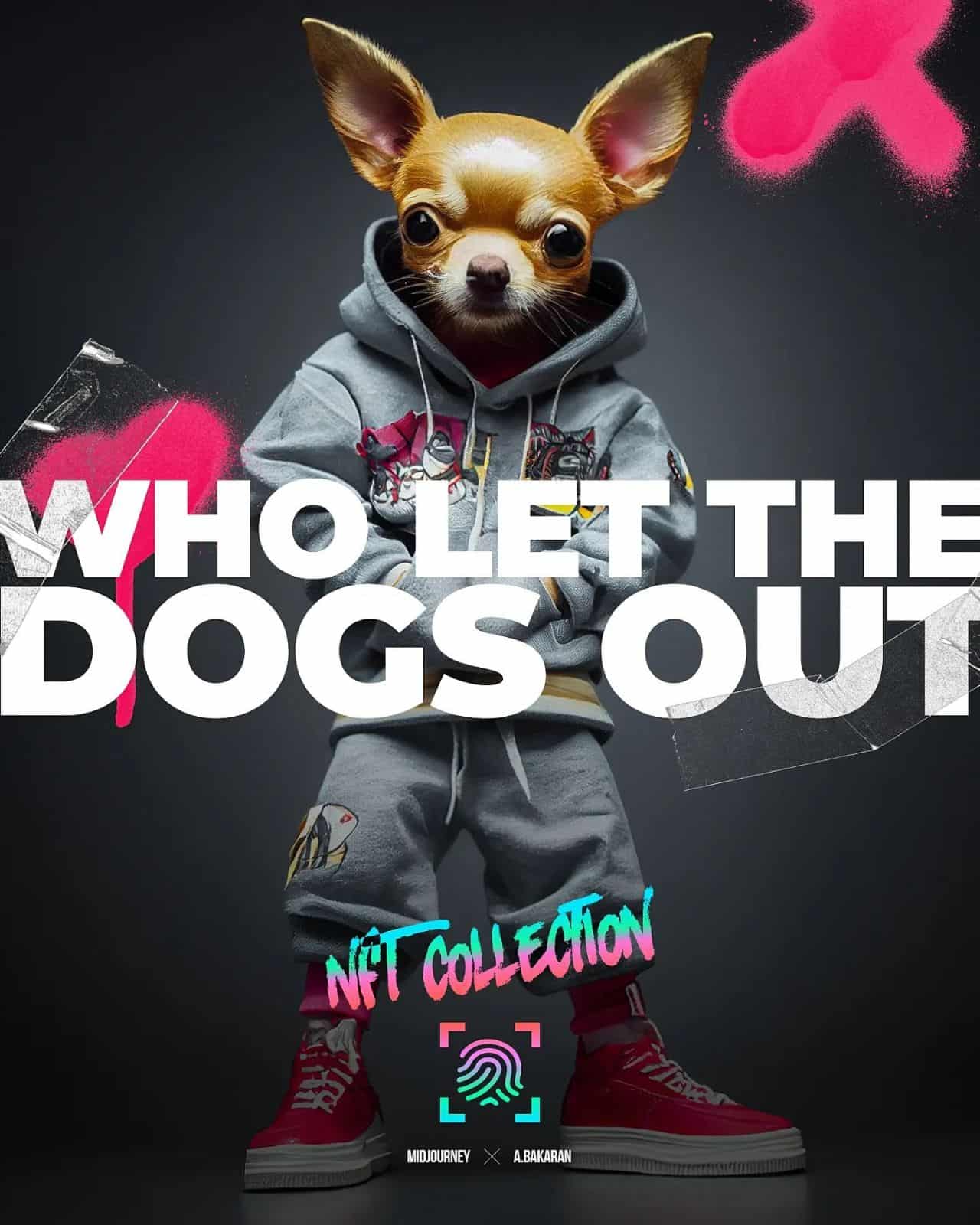

Advantages of Using AI Images in Marketing
There are a few advantages to using AI images in your marketing strategy. First, AI images can help you stand out from the crowd. With so much content being pushed out constantly, it's hard to make your content pop. However, with AI images, you can create unique and Eye-catching visuals that will grab attention.
Secondly, AI images can create emotional connections with your audience. By using illustrations that evoke certain emotions, you can more effectively connect with your target audience on a deeper level.
Finally, AI images can be used to save time and money. traditional stock photos can be costly, and if you're working with a tight budget, AI images may be a more cost-effective option for you.
Disadvantages of Using AI Images in Marketing
Of course, there are also a few disadvantages to using AI images in your marketing strategy. First, some people may find AI images to be offputting. They may see them as fake or artificial, hurting your brand image.
Additionally, using AI-generated photos carelessly could make your content look insincere. Your reader mustn't feel like you're constantly trying to sell them something; instead, your goal should be to provide value and helpful information.
AI Images and Copyright issues
The copyright issues with AI-generated content are still being sorted out. For now, it's unclear who owns the copyright to AI-generated images.
Do the AI creators have the copyright since they created the tool that generated the image? Or do I, the user, have the copyright since I used the AI tool to create something new? It's a tricky question with no clear answer.
Despite what the creators tell users of DALL·E, Midjourney, Hotpot.ai and other AI-generated art generators, AI images are still new and unexplored territory. Because of this, it will likely take some time for the law to catch up and provide clarity on the matter.
JumpStory warns users that AI-generated images “may infringe on existing copyrights and trademarks”, stating that AI images can't be used for commercial purposes without permission because:
1. You can't copyright AI-generated content, so it doesn't actually belong to the customers. This means that you don't own anything that you create.
2. You risk getting into legal trouble because the images used to train these AI platforms are not allowed to be used for such commercial purposes.
3. If you get into legal trouble, these companies don't protect you in any way, so you will be paying for the copyright infringements yourself.
Getty Images has banned the sale of AI-generated illustrations, but it's unclear if other stock photo sites will follow suit.
The number of copyright infringement claims involving free stock images has grown dramatically in recent years. AI has made it much easier to keep track of the use of images without the proper copyright, licensing, and/or model releases. This has resulted in more copyright infringement claims being sent to users of free platforms like Unsplash, Pexels, and Pixabay.
If AI images become more widely used, we may see a rise in AI image creators who will sell their AI-generated creations. Only time will tell.
Should Creators Profit From AI?
Should creators and businesses use images created by AI without having to worry about copyright issues? Can artists stop their work, or style, from being used by AI and reproduced without permission? The issue is complicating as AI technology rapidly changes the way we create and consume images.
When cameras were invented, many people thought that pictures would be the final nail in the coffin for visual arts. However, today we know that photography is a kind of art on its own. A camera is about more than just churning out pictures on its own – it gives people a chance to be creative.
Just as having a camera does not make you a photographer, using AI to create images does not make you an artist. However, AI images are a new way to create art, and they should be treated as such.
AI-generated images require human guidance, input, selection, and sometimes editing. The prompts, choice, and concepts are still the most important aspect of the job, and all of that comes from a human mind. AI is just the tool being used to create the image.
Visual, creative types will be able to utilize these AI technologies to come up with ideas, get inspiration for work, and test out prototypes before transforming them into a finished product.
A Lawyer's View on AI Image Use
Commenting on the IP law implications of AI-generated art, MBHB Partner Bradley Hulbert told TechCrunch that image-generating systems are problematic from a copyright perspective in several aspects. He noted that the courts found artwork that's “demonstrably derived” from a “protected work” — i.e. a copyrighted character — to be infringing, even if additional elements were added.
“If a Disney princess is recognizable in an image generated by DALL-E 2, we can safely assume that The Walt Disney Co. will likely assert that the DALL-E 2 image is a derivative work and an infringement of its copyrights on the Disney princess likeness,” Hulbert told TechCrunch via email.
“A substantial transformation is also a factor considered when determining whether a copy constitutes ‘fair use.' But, again, to the extent a Disney princess is recognizable in a later work, assume that Disney will assert later work is a copyright infringement.”
Conclusion
So, should you use AI images in your marketing strategy? It depends. They can help you stand out from the crowd, connect with your audience emotionally, and save time and money.
However, they may also turn some people off and make your content look too sales-oriented. Ultimately, it's up to you to decide whether or not using AI Images is right for your business.
To find out, I decided to play with some AI image-generation tools. I was surprised at how easy they were to use and how realistic the results were. I created a few different images, including images of people, landscapes, and products.
I also asked my kids to try it out, and they had a blast! They were able to create some pretty realistic-looking images, too. Overall, I was impressed with the AI images I generated.
However, I'm still unsure if AI images suit marketing purposes. I'm not sure if they are more compelling than cheesy stock images. AI images might be more realistic, but sometimes the cheesiness of a stock image is what makes it effective.
I think it depends on the business and the target audience. AI images might work well for some businesses, while others might do better with traditional stock photos.
Some of the images are realistic enough that they could easily be used on a website or in an email marketing campaign. And best of all, I seemingly don't have to worry about copyright infringement since I created the image myself using an AI tool.
Overall, I was impressed with the AI-generated images I was able to create. They were realistic and would be perfectly suitable for use in marketing and advertising materials. Perhaps most importantly, they avoided the cheesiness that often plagues stock photos. If you're looking for a fresh way to market your business, consider using AI-generated images.
What do you think? Are AI images helpful in marketing? Or are they just a passing fad? Let me know your thoughts in the comments below. Thanks for reading!
